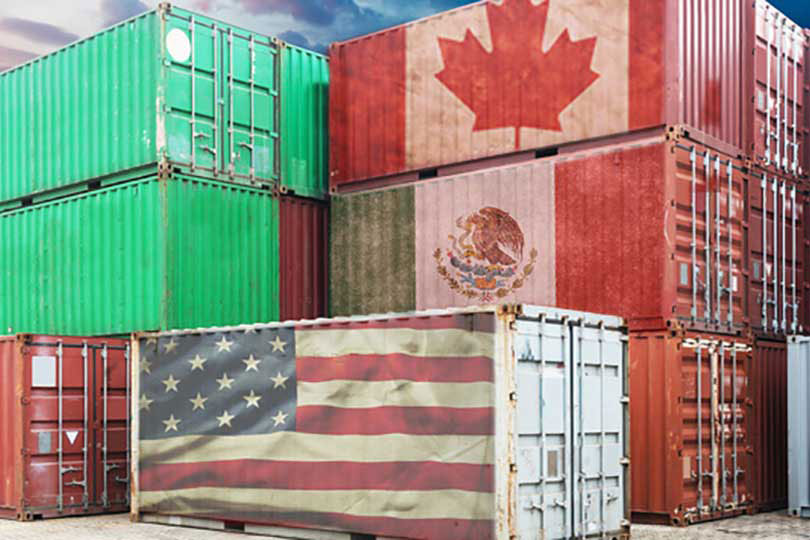By Justin Walker
Communications Specialist
The steel and aluminum tariffs on Mexico and Canada may play a crucial role in ratifying the U.S.-Mexico-Canada Agreement (USMCA).
Many in agriculture believed the Section 232 tariffs would be removed when U.S. leaders ratified USMCA. However, as farm and business groups begin pushing for approval of the agreement, the tariffs appear to be in place for a while longer.
Signing USMCA would be a “field goal” for the U.S., Secretary of Agriculture Sonny Perdue said. While the agreement would benefit American agriculture, there is more to achieve.
“We will consider it a touchdown when we are able to remove the 232 tariffs,” Perdue said.
The exact reason for the tariffs still being imposed is under debate. Some believe the tariffs are still in place as leverage to make sure Mexico and Canada sign the agreement.
However, others argue this is causing leaders of the two countries to avoid ratifying the USMCA.
“Everyone knows that the tariffs are an issue and an impediment to ratification of the two countries,” Perdue said.
Even if the tariffs were removed, they would likely be replaced by export quotas, Perdue said.
USMCA has received a significant push in support by agricultural groups recently. A coalition, which includes the American Farm Bureau Federation, calls upon Congress to ratify the agreement, which would replace the North American Free Trade Agreement signed in 1994.
The tariffs and USMCA signing are not the only items of concern for the three North American countries. At the annual Agricultural Outlook Forum, Perdue and his Mexican and Canadian counterparts discussed how the three countries would handle biosecurity efforts, particularly in fighting African swine fever (ASF).
“Over the years, the United States, Canada and Mexico have engaged in several crucial cooperation programs to protect plant and animal health, strengthen useful satisfactory and forecast systems, conduct joint research and share best practices,” Mexican Secretary of Agriculture Victor Villalobos said.
The history of cooperative biosecurity measures will be key moving forward, Canadian Minister of Agriculture Lawrence MacAulay said. MacAulay, Villalobos and Perdue will meet at a symposium in April to discuss future efforts, including protecting North American swine populations from ASF.
“What we want to do is sit down and put something together that will deal with this issue—not after it comes—but before it comes,” MacAulay said.
Perdue described any potential programs as a “neighborhood watch” between the three countries.

